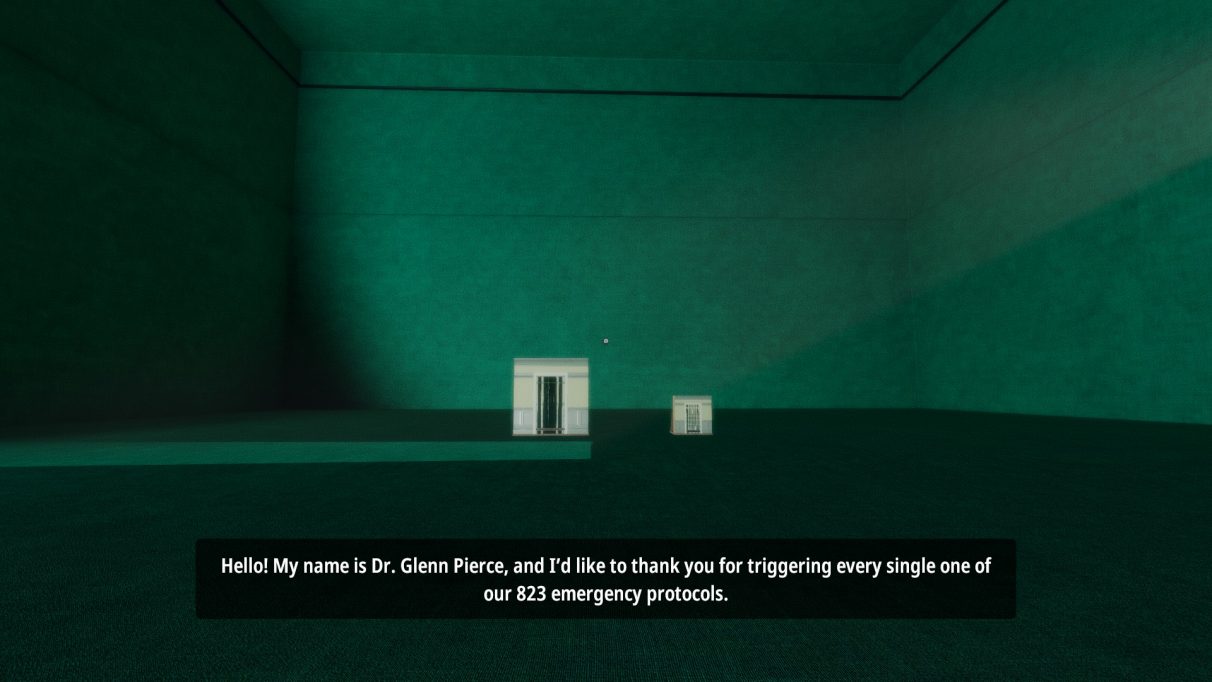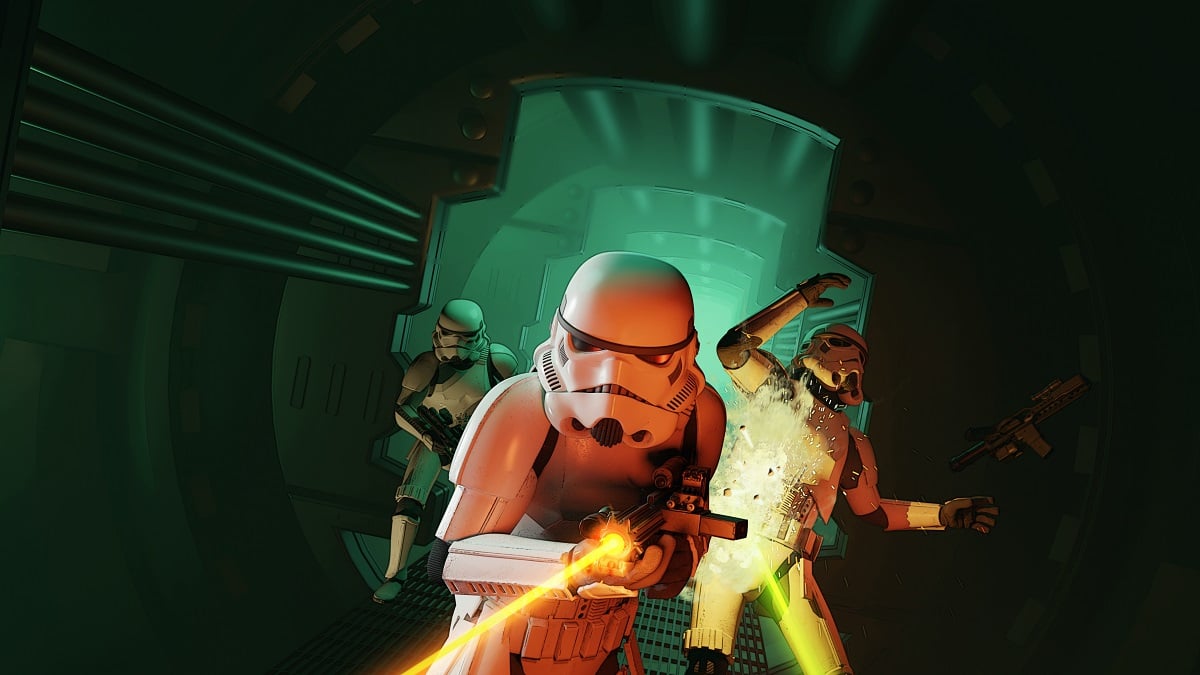
It have to be daunting, making a primary particular person puzzle game about messing with physics. Do I even want to call the shadow looming over this entire style?
Superliminal is a brief, linear showcase of puzzles constructed across the inventive use of perspective. You’re a volunteer, testing an experimental sleep remedy based mostly on inducing goals you may muck about in. Gentle, soothing jazz plinkles away in a collection of rooms you will need to navigate by resizing objects, however there’s no embiggening gun or shrink ray right here. You change the dimensions of issues by choosing them up, then trying and shifting round till they seem in another way out of your new place.
It’s a bit like if Father Dougal had mastery over the bodily world. Objects you may work together with will drastically change in dimension as you progress them round, in a means that shortly makes intuitive sense, however is inevitably tough to explain with phrases. Pick up a knee-high dice and look down on the ground earlier than dropping it, and it’ll all of a sudden be the dimensions of a small walnut. Pick it up once more and look throughout a big room, and it’ll as a substitute drop on the ground over there… and as you stroll over you’ll realise it’s now twice as tall as you.

A tiny wedge of cheese can turn into a ramp over a wall. Fire exit indicators might be blown up till they fill the room. Giant chess items might be shrunk down and carried via a tiny doorway. The potential functions for environmental problem-solving are pretty apparent. Superliminal has extra tips too. Distorted shapes painted onto a number of surfaces can, should you stand in the best spot, seem as an intact object hovering weirdly within the air. They can then be grabbed and can immediately turn into a tangible merchandise.
A couple of tips deploy gentle and shadow as a substitute, cleverly taking part in on the complacency you’ve most likely developed in constructing ramps and junk staircases. That play in opposition to expectations is essential to the narrative, too, and kind of the purpose of the entire thing philosophically.
Oh, and of course there are unseen entities supervising the experiment, providing suggestions, non-sequiturs, and delicate criticism of your actions as you undergo. They’re not the … effectively, they’re not GladOS. And that’s superb.
It actually actually is ok. Even although one of many voices is a gently chiding, robotic one with a slight satirical bent, I don’t suppose it’s a copycat job, neither is it an affordable, pointless reference to Portal. It’s a deliberate ploy, to tempt the participant into assuming issues based mostly on their information of Portal’s setup, solely to subvert them later. It’s a good move, and it’s clear that Superliminal is taking a “question your assumptions” method to its story in addition to it puzzles. But past some novel setpieces, it’s probably not doing something deep or attention-grabbing with both.

If you get caught, there’s no considering your means out of it. It’s only a case of trying round for the merchandise you’re presupposed to be interacting with, or the hidden exit you’ve missed (to be truthful, these are typically merely areas you overlook, reasonably than unspottable secret doorways). Puzzles principally come all the way down to stacking or getting issues to the best dimension, and this in itself might be fairly fiddly because the nature of the game can flip a barely incorrect angle right into a drastically totally different outcome from the one you wished.
There are some nice and really cool moments the place issues break aside in inventive, escherian methods, and the sense that your dream world is beginning to unravel matches this effectively. But there are too many very boring corridors and awkward moments of repeatedly resizing and putting gadgets to get the outcome you had been aiming for. The gadgets are principally very boring too (unusually, a whiteboard within the game even attracts consideration to this).
You don’t have a toolset, is the issue. You both have the answer otherwise you don’t. Most of the options are pretty apparent, and that’s superb, however there’s little or no experimentation to be finished, and though there are some genuinely spectacular moments (one the place I plucked a painted object out of the air, just for it to additionally take away the wall behind it, was notably easy), it’s simply not very satisfying both to resolve the puzzles or to fiddle.

Superliminal is extra like a tour than something. And once more, I’m impressed that its visible tips work so effectively – however I simply didn’t really feel all that motivated by both them or the narrative. Its setting labored as an excuse for its reality-warping oddness, however was in any other case squandered. I can keep in mind nearly nothing of its script. The twist wasn’t what I used to be anticipating, and works effectively due to that on a meta-level, nevertheless it’s instantly adopted by a moralising conclusion that the story and tone hadn’t earned, and which in every other context I’d have discovered deeply patronising.
To be frank, I’ve struggled to say all that a lot about Superliminal. It’s an accomplishment, and it’s actually higher and extra unique than the huge bulk of games within the physics-gimmick subgenre, however I respect it much more than I prefer it.


